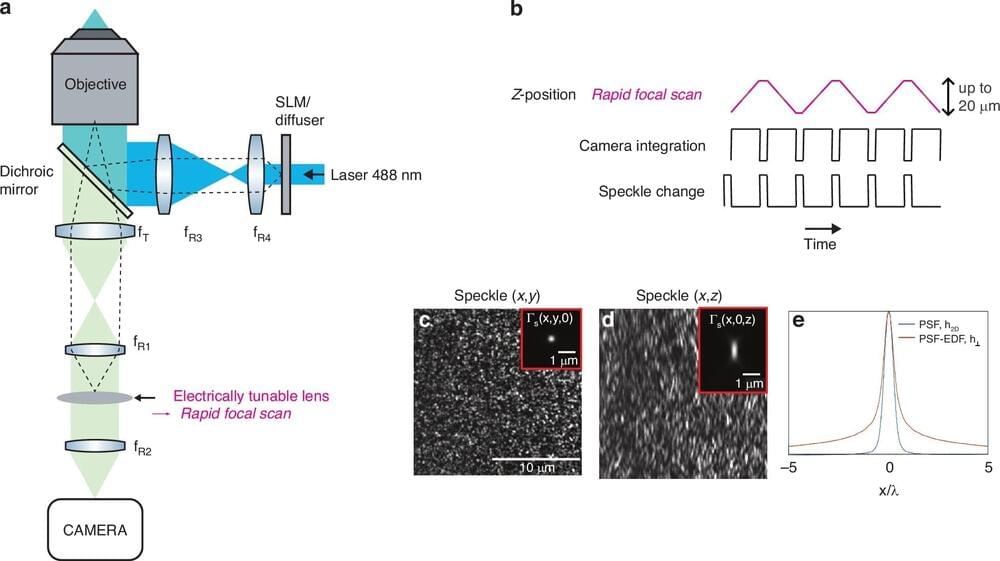Fluorescence microscopy is a powerful tool in biology, allowing researchers to visualize the intricate world of cells and tissues at a molecular level. While this technique has revolutionized our understanding of biological processes, imaging large and complex 3D structures, such as embryos or organoids, remains a challenge. This is especially true when studying intricate details beyond the optical resolution limit using structured illumination microscopy (SIM).
Fast super-resolved microscopy enables structured illumination and extended depth detection
Posted in biological
